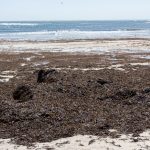
You’ve been diagnosed with depression. What’s next? The cornerstone of treatment remains antidepressants, so it’s likely your doctor will prescribe one for you, but which one might be best? You will join millions around the world who struggle with how to treat the mental health disorder. An estimated 3.8% of the global population experiences depression, according to the World Health Organization. The numbers are staggering, but when depression is left untreated, it can impair daily functioning, raise the risk of suicide and lower quality of life. Fortunately, there are many different types of antidepressants available, each with unique mechanisms of action, benefits and potential side effects. Here, experts will explore the most commonly prescribed depression medications, how they work and their common side effects. Depression medications Dr. Abid Nazeer, founder, chief medical officer and medical director of Advanced Psych Solutions in Naperville, Ill., stated, “If you don’t treat depression, there’s a risk that you may get through the day, but it will feel like a struggle. If it’s been adequately treated, you can have a much better day.” Meanwhile, Pardis Khosravi, a psychologist and clinical director at Children’s Health Council in California, said, “Depression is not something you can ‘power through’ or think your way out of with positive thoughts. It is a medical illness that left untreated can have a profound impact on your… read on > read on >



























-300x200.jpg)










